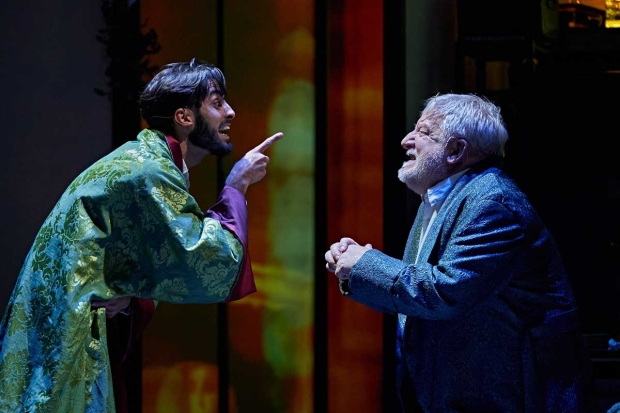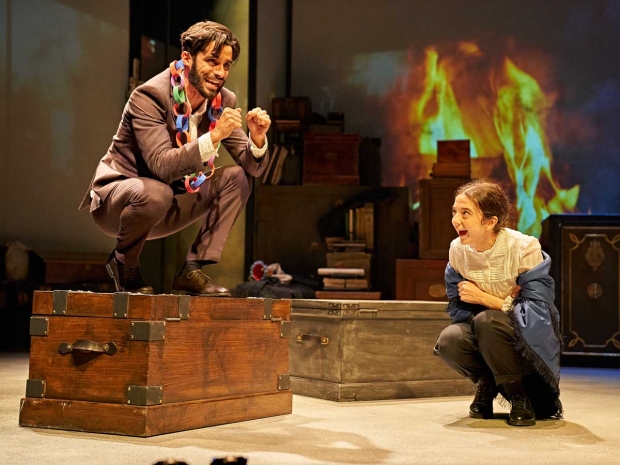
© Manuel Harlan
There are at least a dozen versions of A Christmas Carol due on stage in the next couple of weeks, and all will have their merits. The reason Charles Dickens' Christmas morality story of miserly old Scrooge and his change of heart when he is visited by the ghosts of Christmas Past, Present and Yet to Come retains such a hold on our imagination is that it is so grippingly good.
But the productions will have to be pretty exceptional to match the grace of this one, adapted and directed by Nicholas Hytner and starring Simon Russell Beale, Patsy Ferran and Eben Figueiredo which tells the tale with exceptional clarity and great imaginative force. Hytner does a simple thing extremely well: instead of inventing dialogue for the characters, he turns them all into the narrators of the novel, letting them slip in and out of different roles, but essentially using Dickens' words and descriptions to push the story along.
Even Simon Russell Beale's Scrooge is his own commentator, moving effortlessly between the third person – "Scrooge said he knew it. And he sobbed" – and his famous lines. "Are there no prisons? Are there no workhouses?" This has the effect of preserving the vividness of Dickens' prose, but also his humour. There's a lightness to the words which wrap the story's serious message, and Dickens' pure fury about the treatment and neglect of the poor, particularly children. His vision and tone are preserved.
Odd scenes falter, but the production overall has the same delicate touch. Rose Revitt uses Bunny Christie's permanent set to provide a timelessly effective design, with neutral costumes (business suits and top hats) and a clutter of money boxes, portable desks and safes, overhung by a tangle of lights above that serve both as Jacob Marley's terrifying chains and bright Christmas lights. Jon Clark's lighting and Gareth Fry's sound design provide smoky, scary atmospherics; Luke Halls and Zakk Hein contribute wonderful videos, which conjure everything from a snowy country walk to a towering black sea when Scrooge is whisked to see a lighthouse. Grant Olding's score chips in some nice songs and carols as well as an undertow of strangeness as the nightmarish night unfolds.

© Manuel Harlan
But none of this would mean much without the versatility and cleverness of the playing. With the help of James Cousins's unobtrusive but effective choreography which seems to make characters dance even when they are still, Figueiredo is a wonderfully fluid figure, terrifying as Marley's ghost, and pantomime dame like as Mrs Cratchit. Ferran's quicksilver reactions are a marvel; emotions, thoughts and feelings seem to shiver through her body whatever she is playing, whether it's a nervy Bob Cratchit or the worried ghost of Christmas past. In one of the few scenes where the characters settle into the dialogue, she makes Belle, Scrooge's wise fiancée, into a fully rounded figure in just a few moments.
It's Russell Beale though who grounds the production in feeling. He's already played Scrooge once this year, providing the voice in a danced version just released in cinemas, but this interpretation is different, more cynical, sadder, funnier, somehow more sympathetic. His little smirk of satisfaction when he puts down the charity collectors – "Scrooge had an improved opinion of himself" – his sudden look of wonder when he is transported to his lonely past, his absolute glee at being allowed to join in his nephew Fred's party, every moment of the man's transformation is beautifully and movingly marked.
At the close, when the production slides into the present day, with precisely the warmth and jubilation that Scrooge himself feels when he flings open his window on Christmas morning, there is a sense of joy and of possibility for a better world. It's lovely.












